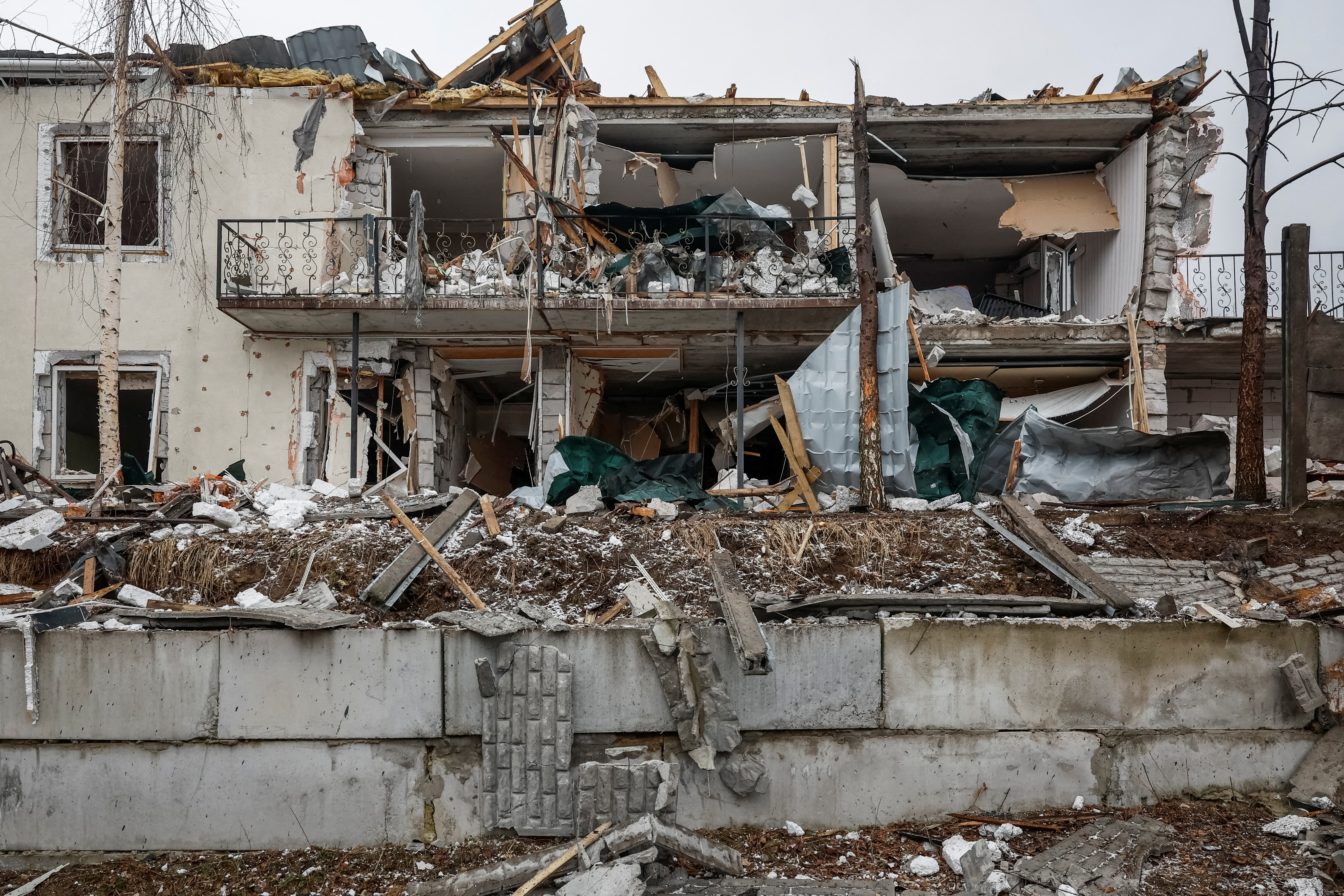If the talks are given time, the chances of long-term success are likely to be greater
It would be an exaggeration to claim that US President Donald Trump’s two-hour telephone conversation with Russian President Vladimir Putin on Tuesday was a failure, but by now I am sure the former has realised that securing an end to the war in Ukraine will be far harder than originally anticipated.
To be fair, it has been some while President Trump has been intimating that this is a terrible situation which the world (not only US Democrats) could have avoided. For there to be a ceasefire, let alone a peace, in Ukraine, compromises will have to be made. Unfortunately, neither side appears willing to consider such at the moment. Thus, one should expect a slow and tortuous slog towards something which, in the end, few (outside of Washington) will want.
The elephant in the room is Russia. Since the dissolution of the USSR, the western world has been unable to find a way for the country to be accepted as a full and equal partner. Every other country in the former Soviet bloc has been welcomed with open arms, but for Russia the door has been repeatedly slammed in its face.
Part of this is the consequence of disappointment in western capitals. After the fall of the Berlin Wall, it was hoped that a new political leadership and therefore elite would emerge and then cement itself in Russia. Yet, by the mid-1990s, this expectation was already beginning to crumble as old structures, networks and families were returning to prominence. It was imagined that Russia could become a partner of the West, but essentially a subservient one. President Boris Yeltsin was the epitome of this.
Unfortunately for the West, there was no successor, and it soon became evident that the new elite was as corrupt as the former elite that they were supposed to have replaced.
So, a “democratic Russia” for the Russian people appeared to be little more than a country as a shadow of its former self, smaller, riddled with crime, beset with ethnic wars (such as the ones in Chechnya) and the country’s wealth being sold off for little or nothing – the fruits of the ill-gotten gains and much of it being exported into western bank accounts, aided by its lawyers and accountants. Even if some of these accusations of Russians may be somewhat one-sided, the western world failed to identify – or at least turned a blind eye towards – a set of circumstances which were unsustainable.
It is inevitable that those who regard themselves as previously subjugated should want to run as far and as quickly as possible from their former master. It was natural, therefore, for former Communist countries in Central and Eastern Europe to rush towards membership of the European Union and Nato. It was perfectly acceptable, indeed correct, for the western world to recognise and then see realised the aspiration of sovereign nations such as these. Russia’s membership of the G8 and the formation of the Nato-Russia Council were welcome developments, but whilst there appeared to be no limits to integration for countries like Poland, Bulgaria and Latvia, for Russia there appeared to be a glass ceiling.
Other mistakes were made. The West appeared, in the mid-90s, to be hoping (tacitly) for Chechen independence, and then 9/11 happened. An event which distracted the United States not without reason for at least a decade, rupturing for a period alliances between friendly governments and creating obstacles towards the emergence of new alliances, on account of the policies undertaken particularly by the administration of George W Bush. Meanwhile, Nato continued to expand eastwards, non-Baltic former Soviet countries expressed their own aspiration to join, yet still Russia was left out in the cold.
No government has ever enjoyed a monopoly of wisdom and, I rather suspect, none ever shall. Moscow made mistakes, too. During the War on Terror perhaps it gave up too soon on the West. Choosing, instead, to find a role for itself, by establishing or maintaining influence in countries far distant from the sympathy of the western world. It certainly failed to show a more sensitive face towards former allies and governments, not only from the former Soviet space, but beyond.
Instead, at best, it chose to insist on its former role as school prefect, certainly now self-appointed. Its worst mistake, even beyond invading Ukraine (for a second time) in 2022, was to annex the newly acquired parts as Russian territory. This has, thus, made it virtually impossible for President Putin to make compromises in return for tangible benefits for Russia and the Russian people.
The tragedy is that Moscow did not heed the good lesson learnt from the war in Georgia in 2008. Fundamentally, Russia achieved its objectives, at minimal cost including to its reputation: namely, to maintain the independence of Abkhazia and South Ossetia; irretrievably weaken the government of Mikheil Saakashvili, and, to this day, keep Georgia out of Nato. All of this was achieved, whilst after a short period withdrawing completely from Georgian territory outside of those two breakaway regions.
Although it might not be favoured by President Trump, it is best not to hurry towards a ceasefire and then any resulting peace between Ukraine and Russia. Of course, this is no comfort to the Ukrainian people. However, if the talks are given time, the chances of long-term success are likely to be greater.
For this, though, to be achieved it will be important finally for the West to begin to define Russia’s future place in the world, in Europe and in international relations.
I have lived in Mordor, as many on social media like to describe Russia. Contrary to belief (among some), it is not a land of darkness, fire and dragons; although, the winters are long and cold.
Still, it is good that conversations are finally taking place. My hope is that they are focused on that long-term, in order to build something which is sustainable and better, for Russia, Ukraine and the West, of which, just perhaps, they can both be (one day) full members; but, maybe, I ask for too much.
Professor Tim Potier is a non-resident Senior Fellow in the Centre for International Law and Governance, The Fletcher School of Law and Diplomacy, Tufts University (US). He is also a consultant with tailormadesolutions.org.






Click here to change your cookie preferences